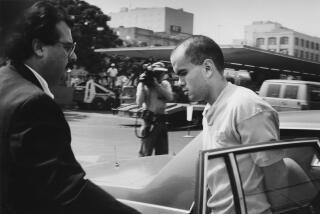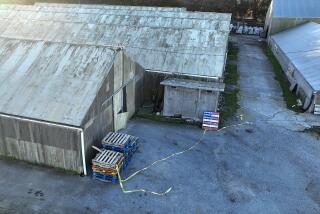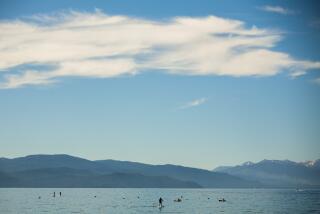An Age of Limits and Definitions : California: We wall ourselves off to find the dream, but it’s our ability to embrace change that makes the state unique.
Two weeks ago, I left college behind to traverse Los Angeles in an exhausting search for a place to live. For the better part of daylight, I ricocheted throughout Santa Monica, bouncing from address to address, hoping to find the ideal apartment. Eventually I hoped to find any apartment, as building after building was eliminated: earthquake damage, too small, too dingy, olive-green shag carpeting. Building eliminations soon led to neighborhood and then regional exclusions: the area looked too run-down, “suspicious” cars drove by just a little too slowly, shady characters hung around outside the local supermarket. It occurred to me that the California in which I grew up was a California not available to most people; in fact, it was a California not now available to me.
Exhausted and depressed, I turned a corner to consult my map and found myself in a neighborhood not unlike my hometown of Claremont: quaint bungalows, mowed lawns, palms and picket fences. Now this was California--the California that exists in many people’s minds and the California that existed in my reality, the California ideal, the California of my expectations. The options looked brighter and I continued my search with renewed vigor. But this vigor was not to last long. There was not an apartment building to be found, and the cost of the occasional duplex made me reel. Nothing to rent, lease or even buy within this housing oasis. There was no room in this area for those with only aspirations of upward mobility and certainly no room for those with no such ambition. Living within the environment of the California ideal in which I grew up is no longer an expectation, but part of a dream.
California’s history comprises the dream, by arrivals from all directions, of a better quality of life for themselves and their families. But that quality has become more difficult to attain, and many of those who have achieved it now believe they must escape just to maintain it. Those of us who can afford to now seem to perpetually run from those now following the same California vision that allowed our own success. We form exclusive communities, without looking back, hoping never to catch a glimpse of the reality that would require us to see these communities as the anachronism that they are rapidly becoming.
The reality of California occupies more than the occasional glimpse that we catch on our way to the airport or the Laker game, when we step outside our sheltered bubble. The reality of California is not the microcosm of palms and bungalows. The reality of California is what we try to escape. That escape is what keeps the California ideal from becoming reality.
Rather than define ourselves according to a dream available only to the few, we need to include in our definition characteristics that make all aspects of California and Californians unique: our ability to adapt to the constant and unexpected changes in our definition; our ability to rumble, roll, shift and shake without warning and still manage to come out standing. It is this resilience that defines California, a resilience on which we have always stood and on which we should continue to rely.
With the taste of graduation still lingering and the scent of the working world wafting in a bit too quickly, I set out with a new vision of California. For me, it is no longer a leisurely ride down tree-lined streets toward the park and not yet a frenzied commute down crowded highways toward corporate headquarters. While many people see mine as an age of limitless options, it is also a time in which seeking limits and definitions is the most important option.
I now set off to define what it means to be a Californian. I may not get my own bungalow; more likely, a studio in a multi-unit apartment complex. But maybe I’ll have a palm outside my window.
More to Read
Start your day right
Sign up for Essential California for news, features and recommendations from the L.A. Times and beyond in your inbox six days a week.
You may occasionally receive promotional content from the Los Angeles Times.





